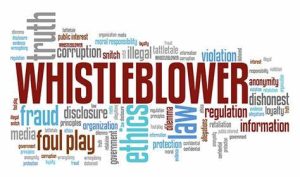
Staff Writer
Whistle-blowers Themba Maseko and Johann Van Loggerenberg, have, in the past week, both seen their houses targeted by burglars. Both Maseko and Van Loggerenberg were at the forefront of highlighting so called state capture in South Africa, and were cited extensively in the first part of the State Capture Commission report, released to President Ramaphosa in late December 2021.
Maseko and Van Loggerenberg both alluded to the high crime numbers in South Africa, but pointed out that the bypassing of sophisticated security systems in their cases indicated a level of organisation. Significantly, the documents taken in the Van Loggrenberg robbery were merely copies, while Maseko was able to stunt the burglary from occurring by distracting the would-be robbers.
Speaking to Radio Islam International, John Clark, the founder and convener of Whistle-blowers for Change, argued that finding a so-called smoking gun would be difficult, but that the pattern of these crimes do point to more sinister motives: “Well, if you’re looking for hard, positive evidence that you can follow exactly what it says, well, not yet, because I promise you it’ll come. But if you look in terms of a pattern, this predates [these incidents which happened to Maseko and Van Loggerenberg]. “
Clark also cautioned about the weaponization of disciplinary processes as a means of cracking down on whistle-blowing, and argued that the system requires a complete overall. In addition, he noted that the EU has a system, which both incentivises whistle-blowing, and also provides restitution for the suffering endured during the whistle-blowing process. South Africa, Clark argued, would do good to follow this; the state capture commission however was a good initial step, but needed to be followed up.







0 Comments